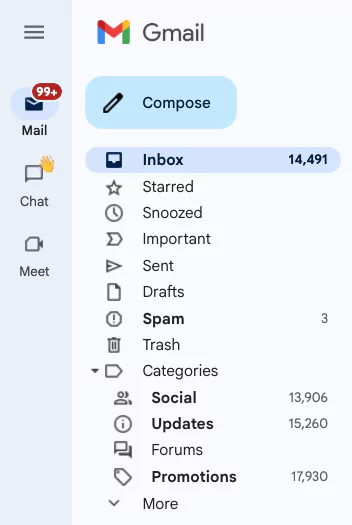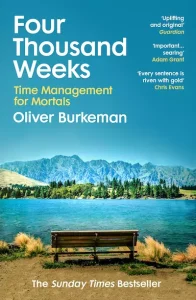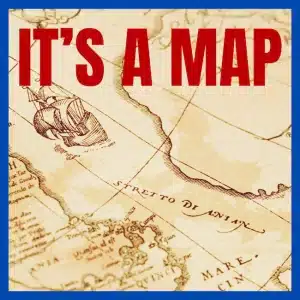Productivity advice usually tells you what to add: more systems, more habits, more tools.
But what if the real power comes from what you stop doing?
In Four Thousand Weeks, Oliver Burkeman flips the script. He says:
“The real measure of any time management technique is whether it helps you neglect the right things.”
That line stopped me in my tracks. Because we live in a world that constantly tells us to keep up, to do more, to stay on top of everything.
But you and I both know… there’s just not enough time.
So let’s talk about the power of choosing what NOT to do — on purpose.
What Is Strategic Neglect?

Burkeman calls it strategic neglect — the idea that since you can’t do everything, the only way to make space for what matters… is to let go of the things that don’t.
This isn’t laziness. It’s not procrastination. It’s intentional, deliberate and purposeful. And best of all, it’s freeing.
Most people are trying to become more productive to fit everything in. But here’s the truth: you’ll never fit everything in.
And that’s not a flaw. That’s reality.
The question isn’t: How can I do more? The question is: What can I afford to miss?
3 Things I Stopped Doing — And Life Got Better
Let me give you three real examples – three things I intentionally chose to stop doing. And what changed when I did.
1. Trying to Keep Up With Every Email

For years, I treated my inbox like a task list. Every message was a demand, and I felt guilty for not replying quickly.
But I realised: most of those emails weren’t urgent… or even important.
Now, I only check my email twice a day.
I don’t aim for inbox zero. I’ve let it go completely in the opposite direction. I’ve deliberately let the weeds grow. At last count, I had 14,491 unread emails. Yep. over 14,000. That’s not a typo.
On the surface, that sounds pretty bad. But I scan my emails. I respond to the important ones and let the rest sit there. If I read them, great. If I don’t, well, that’s okay too.
Plus, I’m constantly unsubscribing from lists that I no longer read.
The result? I don’t sweat the small stuff anymore. This means I’m free to focus on what is important. And I finally feel like my time belongs to me again.
2. Saying Yes to Every Opportunity
This one was hard. When someone asks you to collaborate, attend an event, or help out — it feels good to say yes. It feels generous.
But there is an opportunity cost. Every time you say “yes”, you also say “no” to something else – usually something I’ve already committed to.
One big decision I made here was to cut my client load to a maximum of 3 people at any one time. And to make this work I raised my fees and cut my expenses.
Now I have less admin and more time for my projects – writing books, making videos, painting watercolours.
Plus, I have more flexibility about when I work, which means more time for deep work, more time with the people I love and less resentment from being stretched too thin.
3. Tracking Everything

At one point, I was tracking habits, goals, time blocks – even how much water I drank. And to make this work, I was always planning things.
I thought I was being disciplined. But then it dawned on me, I was micromanaging myself.
Now, I’ve changed things in a big way. I don’t have a schedule because I might only have 3-5 appointments for the week.
Instead, I simply write down the big thing that needs to happen for the week and for the day. Today I’m making this video and writing this blog post.
And I have a short list of any little jobs that need to be ticked off, like paying bills or replying to a message.
Then I get on with it. If I need a break, I take a break.
And at the end of the day, I review what got done. And if need be, something rolls over to the next day. Most of the time, this works. And it means I’m not stressing over false deadlines.
Oddly… I’m more consistent than ever. Because when you’re doing fewer things, you don’t need to manage yourself so tightly. You just show up.
The Freedom Paradox
Here’s the paradox: We think more control gives us more freedom. But real freedom often comes from limiting your choices.
This is what Burkeman calls joyful limitation.
It’s not about restriction. It’s about intention. You don’t need to be everywhere, you don’t need to say yes to everything, and you don’t need to do everything either.
You simply need to do the right things — and ignore the rest.
It’s like creating art: you can’t paint with every color at once. You choose a palette. And that’s what makes it beautiful.

Choose What to Let Go Of
So here’s the question I’m sitting with — and maybe you are too:
“What’s one thing I could let go of this week — not because it doesn’t matter at all, but because it doesn’t matter enough?”
That’s strategic neglect.
That’s how you stop trying to do it all — and start doing what matters.
Because you only get four thousand weeks. Use them well.
Build a life that honours your limits… and finds meaning within them.
More on Four Thousand Weeks and the Power of Saying No
To dig deeper into the art of intentional living and the issues raised by Oliver Burkeman’s book Four Thousand Weeks, read these blog posts next:



